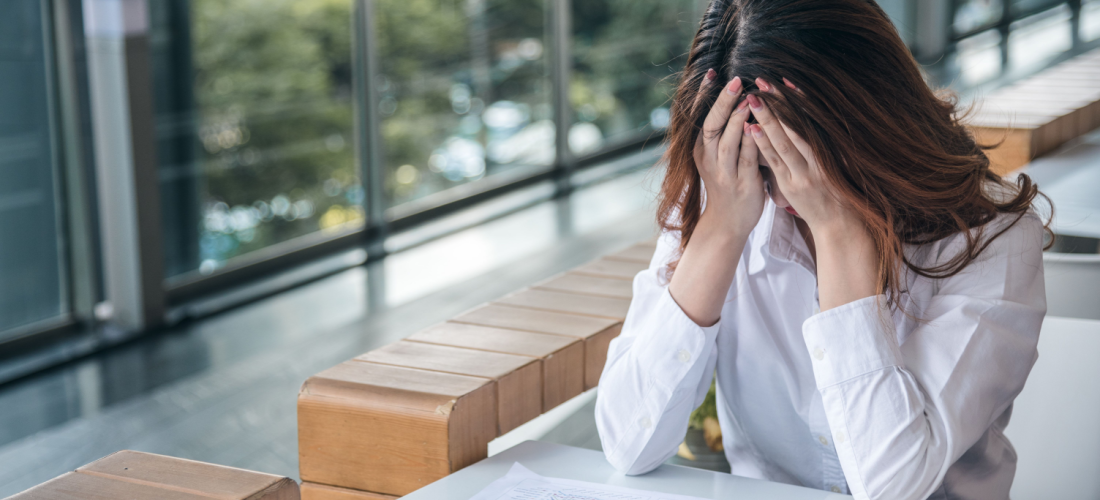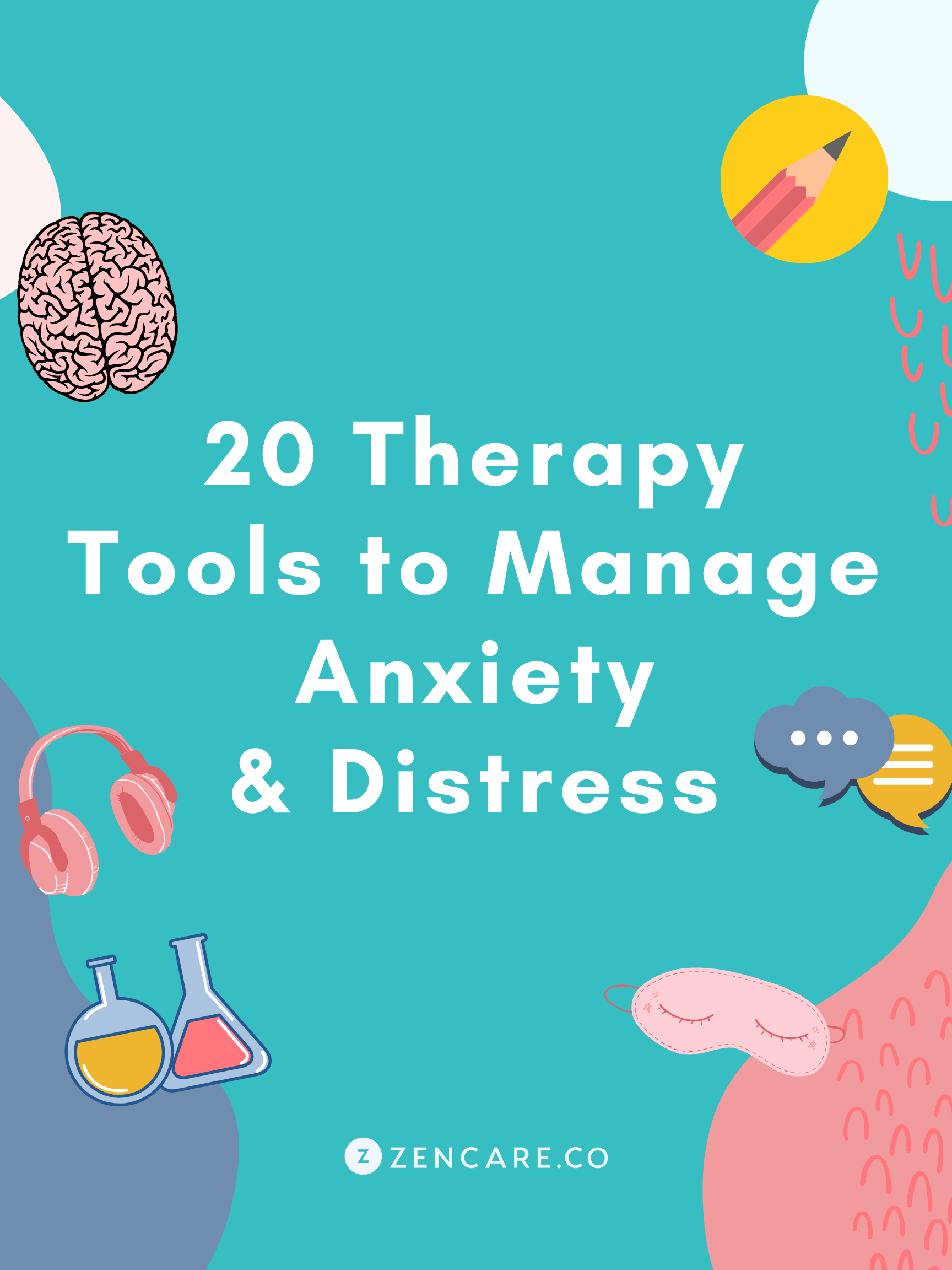Exploring Different Techniques in Therapy for Stress And Anxiety Condition for Enduring Adjustment
When taking on anxiousness problems, it's necessary to check out a selection of therapy techniques. Each approach offers unique insights and tools to aid you handle your signs and symptoms effectively. You might find that combining techniques can yield the very best results. However, understanding the nuances of these approaches is key to promoting enduring adjustment. What happens if the appropriate mix could launch a new degree of psychological well-being for you?
Understanding Anxiousness Conditions: A Brief Overview
Anxiousness conditions, which affect millions of individuals worldwide, can greatly influence every day life. You may experience overwhelming feelings of fear or worry that appear unmanageable. These sensations can bring about physical signs like an auto racing heart, sweating, or perhaps lightheadedness. Typical types of anxiety conditions include generalized anxiety disorder, panic problem, and social stress and anxiety problem. Each has special signs, however they all share a propensity to disrupt your regular and relationships.Understanding the origin causes of your anxiety is crucial. It may originate from genetics, mind chemistry, or life experiences. Recognizing your triggers can aid you manage your actions much better. It is essential to keep in mind that you're not alone in this battle. Lots of people encounter similar obstacles, and seeking aid is a strong action toward sensation better. By learning more about anxiousness conditions, you're already on the course to understanding and managing your condition better.
Cognitive-Behavioral Therapy: Challenging Unfavorable Idea Patterns
In Cognitive-Behavioral Treatment, you'll start by determining the unfavorable idea causes that add to your stress and anxiety. You'll function on changing them with even more favorable alternatives when you identify these ideas. With each other, you'll build efficient coping approaches to aid handle your anxiety in day-to-day scenarios.
Identifying Negative Thought Triggers

Acknowledging the specific triggers behind your negative ideas can be essential in managing anxiety when you encounter minutes of distress. Beginning by paying interest to circumstances that provoke feelings of worry or anxiety. Is it a crowded area, a future due date, or a conversation with certain individuals? Write these instances in a journal. This will certainly aid you identify patterns in your reasoning. Notification physical feelings that accompany your negative ideas, like a racing heart or tightness in your upper body. By determining these triggers, you get insight right into what's fueling your anxiety. Recognizing these links is the primary step in testing those ideas and inevitably reclaiming control over your psychological actions.
Replacing Thoughts With Positives
Testing negative idea patterns is a crucial step in changing your state of mind and lowering anxiety. You may commonly find yourself caught in cycles of insecurity or disastrous thinking. Instead of allowing these ideas dictate your feelings, method changing them with practical alternatives or positive affirmations. When you assume, "I can't manage this," move it to, "I can handle challenges one step at a time." This simple change can significantly influence your emotion. Regularly identifying and responding to these unfavorable thoughts helps develop a much healthier inner dialogue. Bear in mind, it takes some time and initiative, but continually practicing this method can lead to enduring modification, empowering you to encounter stress and anxiety with restored self-confidence and durability.
Building Coping Methods Together
Changing adverse ideas is only the start of managing anxiety effectively. To create lasting change, you need to build coping methods that encourage you. Cognitive-Behavioral Therapy (CBT) helps you determine and test those unhelpful thought patterns. With each other, you and your counselor can explore just how these ideas impact your sensations and behaviors.Start by creating functional strategies, like journaling or mindfulness workouts, that permit you to challenge anxiety head-on. When you encounter your concerns gradually, you'll learn to react in different ways.

Mindfulness and Acceptance-Based Approaches: Growing Present-Moment Awareness
As you browse the intricacies of stress and anxiety, incorporating mindfulness and acceptance-based strategies can substantially improve your ability to grow present-moment recognition. By concentrating on the present moment, you'll discover that you can observe your thoughts and feelings without judgment (Counseling services for anxiety). This practice helps you acknowledge your stress and anxiety without really feeling overwhelmed by it.Engaging in mindfulness exercises, such as deep breathing, body scans, or led reflections, permits you to ground on your own in your current experience. Acceptance-based methods urge you to embrace your emotions instead of deal with against them. When you approve your sensations, they lose their power over you.Incorporating these methods right into your everyday regimen can transform just how you reply to stress and anxiety. You'll establish strength and find out to navigate stressful scenarios with higher convenience. Inevitably, growing present-moment awareness lays the foundation for long-term adjustment, empowering you to lead a more satisfying life
Direct Exposure Therapy: Facing Anxieties Progressively
Exposure therapy helps you challenge your worries in a progressive means, making it much less frustrating. You'll find out techniques check here to face anxiety-provoking circumstances step by step, while also building coping techniques to handle your reactions. This method equips you to take control and decrease stress and anxiety with time.
Steady Direct Exposure Methods

When encountering anxiety, gradually challenging your worries can be an effective method to restore control. This technique, recognized as progressive exposure, involves slowly exposing on your own to the circumstances or things that trigger your anxiousness. Begin with less challenging scenarios and slowly function your way approximately more tough ones. As an example, if you're terrified of public speaking, you may begin by talking before a mirror, then advance to sharing ideas with a good friend, and ultimately resolve a small group. Each action aids desensitize you to the fear, constructing your self-confidence in time. Keep in mind, it's important to speed yourself and celebrate tiny success as you relocate through this process, strengthening your capacity to take care of stress and anxiety efficiently.
Building Coping Methods
Structure reliable coping strategies is vital for managing anxiety, particularly as you confront your anxieties progressively - Counseling services for anxiety. One powerful method is direct exposure treatment, where you start by encountering your worries in a regulated manner. Start with less intimidating situations and slowly work your way as much as more tough scenarios. This gradual direct exposure aids desensitize you to stress and anxiety causes, making them much less overwhelming.Incorporate leisure methods, such as deep breathing or mindfulness, to calm your mind during direct exposure. Track your progress, commemorating tiny success along the method to increase your self-confidence. Keep in mind, it's fine to take your time; the goal isn't perfection yet constant improvement. By constructing these approaches, you'll equip yourself to browse stress and anxiety and welcome life a lot more completely
Psychodynamic Therapy: Revealing Source of Anxiety
Psychodynamic treatment checks out the unconscious mind, disclosing the origin of your anxiousness. By examining your ideas, sensations, and previous experiences, this technique assists you uncover underlying problems and unresolved problems that may add to your existing anxiety. You'll deal with a therapist to explore childhood years experiences, relationships, and psychological patterns that form your reactions today.As you get insight into these deeper layers of your psyche, you'll begin to identify just how previous events influence your existing behavior. This understanding can cause catharsis, enabling you to process emotions you may have suppressed.Through the restorative connection, you can also identify defense reaction that may have created over time, providing a more clear path to alter. Inevitably, psychodynamic therapy equips you with the devices to address your stress and anxiety at its core, promoting long-term transformation in your psychological wellness.
Holistic and integrative Approaches: Combining Strategies for Greater Effectiveness
Incorporating various healing strategies can enhance your trip toward taking care of anxiety a lot more effectively. By combining aspects from cognitive-behavioral treatment, mindfulness methods, and holistic methods, you can create a personalized technique that resolves your special demands. You may utilize cognitive-behavioral methods to challenge unfavorable thought patterns while integrating mindfulness exercises to ground yourself in the existing moment.Additionally, discovering all natural techniques such as yoga exercise or meditation can promote relaxation and reduce anxiety symptoms. This mix permits you to establish higher self-awareness and resilience.Experimenting with these diverse methods can aid you uncover what reverberates most with you. Bear in mind, it has to do with discovering a synergy that works, as opposed to sticking to a solitary technique. This integrative method not only supplies prompt alleviation however also fosters lasting abilities for handling stress and anxiety, empowering you to reclaim control over your life.
The Function of Support Systems: Building Durability With Link
While it may seem that managing anxiety is a singular journey, having a solid support group can play a vital role in your resilience. Bordering on your own with understanding friends, family members, or support system produces a safe area where you can freely share your experiences and feelings. You remind yourself that you're not alone in this struggle.These partnerships supply support and can provide functional coping methods that have worked for others when you link with others. It's additionally a possibility to obtain perspective; close friends can help you see situations differently, minimizing sensations of isolation.Moreover, psychological support fosters a sense of belonging, which can considerably reduce stress and anxiety signs and symptoms. By leaning on your support system, you can build strength and take on challenges better. Remember, connecting for aid suggests strength, and it can make all the difference in your journey towards managing anxiety.
Often Asked Concerns
What Are the Common Signs of Anxiousness Problems?
You could experience restlessness, fatigue, difficulty focusing, irritation, muscular tissue stress, and rest disruptions. Physical signs can include rapid heartbeat, sweating, and trembling. Recognizing these signs early can help you look for appropriate support and therapy.
Exactly How Long Does Therapy Commonly Last for Stress And Anxiety Conditions?
Therapy for anxiety disorders normally lasts anywhere from a couple of weeks to numerous months. It truly depends upon your private requirements, development, and the techniques your therapist uses to aid you handle your stress and anxiety properly.
Can Drug Be Made Use Of Along With Treatment for Stress and anxiety?
Yes, medication can definitely be made use of together with therapy for anxiety. Incorporating both techniques typically improves therapy efficiency, helping you take care of signs and symptoms while checking out underlying concerns via therapy (Counseling services for anxiety). Always consult your healthcare service provider for personalized suggestions
Exist Self-Help Approaches for Managing Stress And Anxiety?
Yes, there are a number of self-help methods for taking care of anxiousness. You can exercise mindfulness, take part in routine workout, preserve a well balanced diet plan, develop a routine, and use deep breathing techniques to help in reducing anxiousness signs successfully.
How Do I Know if I Required Expert Assistance for Stress And Anxiety?
